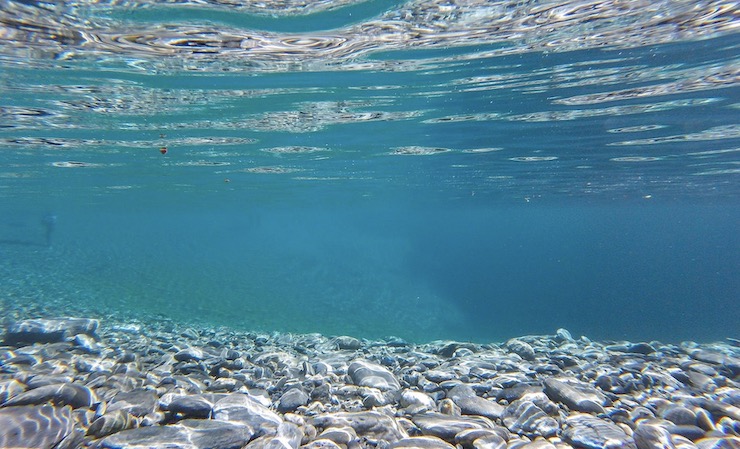Should Underwater Drones Replace Human Divers?

Underwater drones are often touted for their ability to replace human divers in a number of critical missions, including dam and dock inspections and search and rescue operations. Drones can generally perform these missions faster and at greater depths and can reduce their safety risk and the operational costs, often substantially. A growing number of local fire departments are switching to drones for just this reason. But the decision, while welcomed by the general public, doesn’t always sit well with divers that lose their jobs.
So discovered the Hall County Georgia Fire Rescue Department last December when it replaced its veteran dive team virtually overnight with an underwater drone equipped with a camera, a sonar system and a robotic arm that can probe for vehicle wreckage and drowned bodies at a depth of 305 meters, if necessary. The drone’s upfront cost of $110,000 seemed prohibitive to some but the head of the department assured the city that its new submersible vessel would more than compensate for the expense with improved efficiency, safety and rescue outcomes.
But at least one veteran diver didn’t think so – and began speaking out. In public postings, and later in a local television interview, Todd Jordan argued that underwater drones lacked the human ability to respond immediately to drownings or to rescue persons still trapped in vehicles underwater. Instead of enhancing safety and efficiency, the new drones would be placing the public in greater danger, he argued.
“If the Public Safety Divers respond to a boat fire and see burnt victims jump overboard, they cannot go underwater after them,” Jordan wrote in a public newsletter, attacking the decision. “If there is a drowning, they will have to stand on the shore or stay on the boat without attempting to save a life….If they respond to a car off a bridge in ten feet of water with children trapped in car seats, they cannot help. Robots cannot enter a car to save a human child in a car seat. Robots cannot untangle themselves when they are trapped in fishing lines and trees.”
Hall County Fire Rescue Chief Chris Armstrong fired back at Jordan, noting that divers would not be replaced but, in fact, would be trained to operate the department’s new underwater drones. He also noted that the new drones had special capabilities, including operating at high-pressure depths that posed a risk to human divers. One of his chief concerns, he noted, was not only increasing his department’s capabilities but also protecting the life of his officers.
But the main reason for the drones, Armstrong argued, was to save the lives of drowning victims and others trapped in dangerous waters. Divers hadn’t saved a single drowning victim in the 20 years since the county’s Marine Rescue Team was founded, he noted. In the 32 drownings since 2017, the department’s dive team had responded to just 10, recovering only four bodies. And during that time it hadn’t saved a single life – not one. It was time to try something new, Armstrong insisted.
It’s worth noting that other locales and public safety organizations that have experimented with underwater drones have realized important operational advantages. The new drones have worked pretty much as Armstrong hopes they will in Hall County, without suffering the unforeseen consequences cited by Jordan in his public criticism.
Still, while the debate in Hall County and elsewhere has already been settled in favor of purchasing drones, some of the operational issues raised by Jordan are not without merit. For example, it’s not entirely clear why a complete switch from divers to drones is necessary. In fact, other local public safety organizations haven’t made such a radical switch – in part, because their new drone was relatively cheap, on loan, or was paid for through a grant, which made an additional budget outlay, and cost-cutting considerations, including lay-offs, less necessary
For example, last February the city of Chicopee, Massachusetts obtained an underwater drone f0r less than $30,000 using a grant from a local foundation. The city’s rescue department didn’t replace its dive team – it’s merely using the drone to supplement their operations when needed.
The head of the Chicopee rescue management team says the main value-added of the drone is for search and rescue during the winter months when people fall through the ice and the water is too cold for human divers to navigate safely. In addition, the drones can probe more deeply for the drowning victims, which allows families to recover the body of a lost family member quickly, rather than having to wait for many months, in some instances, to verify a loved one’s death, making a painful grieving process even more painful.
Drones and human divers can also operate in tandem, maximizing the efficiency of each. In Butler County, Ohio, the Sheriff’s department uses underwater drones equipped with hundreds of lights that increase visibility by 10 or more feet in dark murky and even contaminated waters. The drones have sophisticated cameras and sensors that can provide real-time visual imagery – and video evidence – to police investigators that can be used at trial or for insurance purposes. The drones can also measure temperatures and depths and are equipped with a compass that can provide coordinates for rescue divers.
The lesson? Depending on cost considerations, applying an “either-or” set of options for underwater drone purchase and deployment is rarely the answer (this is also true of aerial drone operations). Drones are an invaluable resource but so are the humans that work alongside them (and often remotely pilot them, in fact). Whenever possible, viewing new technology as an extension – rather than a substitute for – human capabilities may be the best way to keep people and machines cooperating for the greatest good – especially for the public at large.
|